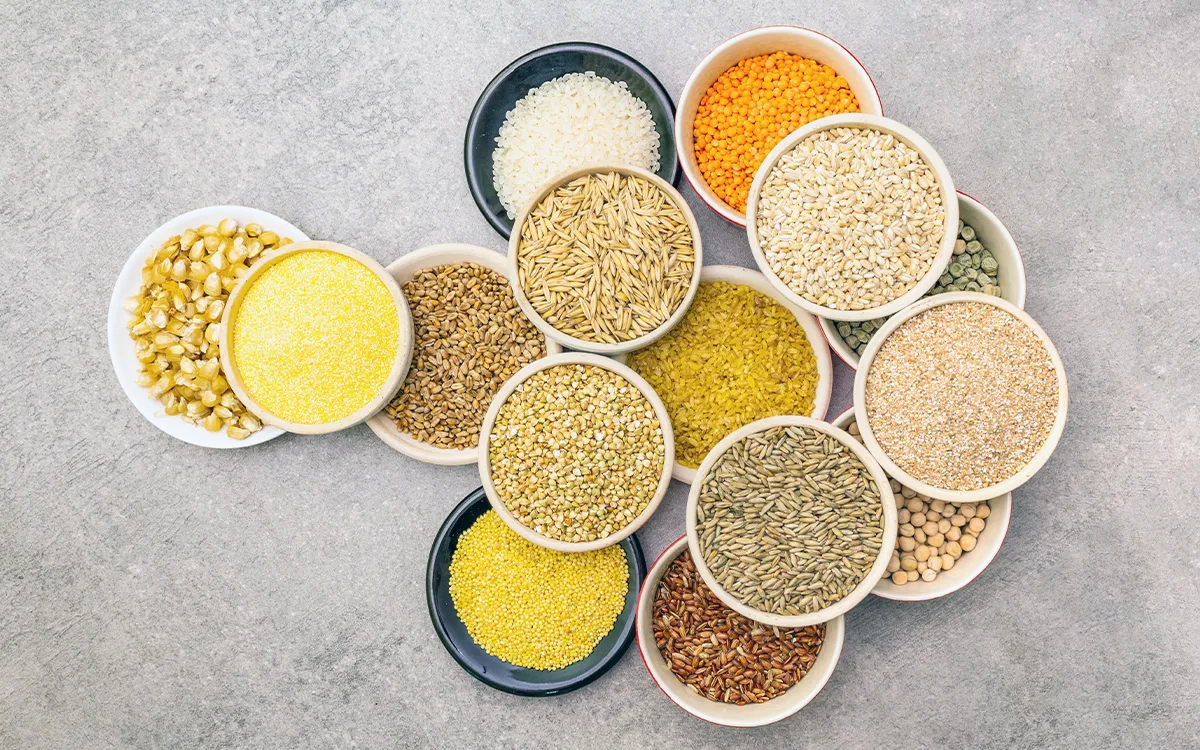When it comes to maintaining a balanced and nourishing diet, whole grains play a crucial role. While many people are familiar with common grain products like white rice and white bread, whole grains offer additional nutritional benefits that make them a valuable part of everyday meals. Understanding the differences between refined grains and whole grains can help you make better food choices that align with your wellness goals.
What Are Whole Grains?
Whole grains are grains that include all three parts of the grain kernel: the bran, germ, and endosperm. This complete structure allows them to retain essential nutrients, making them a richer source of dietary fiber, vitamins, and minerals. Examples of whole grains include brown rice, cracked wheat, and certain types of breakfast cereals.
In contrast, refined grains like white rice and white flour go through a milling process that removes the bran and germ. While this helps shelf life, it also strips away key nutrients.
The Nutritional Value of Whole Grains
Whole grains are packed with essential nutrients that can help maintain overall wellness. These grains are a valuable source of:
- Dietary Fiber: Helps ease digestion and supports healthy gut function.
- B Vitamins: Help maintain energy levels and metabolism.
- Iron, Magnesium, and Zinc: Essential for various bodily functions and immune support.
How Whole Grains Support a Healthy Diet
Incorporating whole grains into your meals can help maintain better eating habits. Whole grains can help ease certain health discomforts and contribute to overall wellness. For instance, studies suggest that diets rich in whole grains may support heart function, making them a thoughtful choice for those seeking balanced nutrition.
Choosing Whole Grains Wisely
When shopping for whole grain products in the United States, reading the ingredient list is key. Look for phrases like “100% whole grain” or “whole wheat flour” as the first ingredient. Popular whole grain options include:
- Brown Rice: A satisfying alternative to white rice that provides more fiber.
- Cracked Wheat: A great addition to salads and side dishes for added texture.
- Whole Grain Breakfast Cereals: Opt for those with minimal added sugars and a high fiber content.
Whole Grains vs. Refined Grains
Refined grains, such as white flour and white bread, undergo processing that removes key nutrients. While these foods can still fit into your diet in moderation, whole grains offer a more complete nutritional profile that can help maintain long-term health.
For example:
- White Rice: Provides energy but lacks the fiber and nutrients found in brown rice.
- White Bread: Often made with refined flour, missing out on the benefits found in whole grain varieties.
Tips for Adding Whole Grains to Your Diet
Incorporating whole grains doesn’t have to be challenging. Consider these practical tips:
- Swap white rice with brown rice in stir-fries or grain bowls.
- Choose whole grain bread over white bread for sandwiches.
- Add cracked wheat or quinoa to salads for extra texture and nutrients.
- Start your day with whole grain breakfast cereals that are low in added sugar.
Conclusion
Whole grains are an important part of a nourishing and balanced diet. By including options like brown rice, cracked wheat, and whole grain breakfast cereals in your meals, you can help maintain overall wellness while enjoying satisfying flavors and textures. Next time you shop for grain foods, be sure to check the ingredient list for whole grain options that suit your lifestyle and taste preferences.

